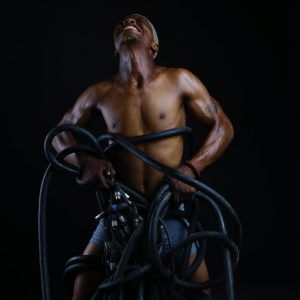A good life is the goal, ultimately. That you’ll get to a certain point in your life, a checkpoint of some sort, look back and hopefully be proud of how everything turned out. But what kind of life would we consider as good? What parameters do we use to measure this elusive sense of pride and satisfaction?
I’ve always liked crisps. And yoghurt, too. But I enjoyed them more when I was younger because watching my weight then was never a full-time job. My point is if 7-year-old me would’ve come across a genie bottle, and I had 3 wishes to make, I’d have wished for an endless supply of deep-fried potatoes (crisps), some yoghurt to down my crisps with, and a decent mansion to house my favourite snacks and family because again, who doesn’t want to live in this small paradise of mine?
Alan Watts – an English writer, speaker, and avid enthusiast of Philosophical texts – best demonstrated what humans really yearn for. For the sake of this beautiful analogy, let’s assume that you can dream of anything and everything your mind can conjure up. You can live on the best beaches in the world, you can be the richest human being ever, and own a thousand yachts. You can even have the most powerful people in the world serve you tea, massage your feet with the rarest of oils and fragrances, and later tuck you in bed. It’s your lucid dream after all, right?
The problem is, for how long will these ‘dreams’ appeal to you? How many times will you have Elon Musk serve you tea and read you bedtime stories before everything about this paradise of yours becomes boring and eventually, unbearable? And at this point, what is it that you can do to introduce the missing elements of thrill, excitement, and most importantly, meaning? Will you continue taking mimosas by the beach or will you seek out challenges?
The point Alan Watts was trying to put across here is that sometimes, we may think that we want it easy. That we want to be pampered and showered with all the desires and wants that float into our brains. Of course, the option of having everything you’ve ever wanted or wished for sounds so good that we can’t visualise ourselves being ungrateful or dissatisfied. And yes, maybe a couple of millions would set you up for life, and maybe you’d be a better version of yourself if you were globe-trotting rather than dissolving into your office chair and desk. But the one thing a lot of people tend to overlook is that pleasure is just one side of the coin. We can’t experience pleasure to its fullest independent of its closest counterpart, pain.
The correlation between struggle or difficulty and meaning
A survey that involved more than a million people was conducted, asking the subjects two pretty simple questions;
1. What is your job?
2. How meaningful is your job?
As your intuition might have inferred, the most meaningful jobs weren’t the highest paying or the jobs with the highest status. Jobs such as being an educator, a health practitioner, or being in the military were ranked as the most meaningful jobs. And in case you didn’t notice, these jobs are considered to be difficult and incorporated within them is a decent amount of struggle.
It’s not to say that all other jobs aren’t as important or challenging. That’s beside the point. At the core of this finding is the idea that struggle, pain and difficulty give meaning and value to our experiences, especially life-long pursuits that structure our way of being. As human beings, it is hard for us to deduce meaning or value from easy tasks and projects. If all you do is win, if all life throws at you is milk and honey, you probably are lost in some Utopian fantasy because that’s not the life nor the reality we are designed to thrive in.
Being noble in the face of pain and suffering
I hated pain. We are not the best of friends now, but I avoided and ran away from it more in my past. There was this girl I went to primary school with that had something to her that I envied, a lot. I’ve never understood why our primary school teachers caned us the way they did, but I bet that’s a question most of us will never get the answer to. So, for this reason specifically, my time in primary school was spiked with a lot of uneasiness and tension, and I always wished I’d be anywhere else but at school.
After exams, we’d have revision sessions where the teacher would punish individuals according to how terrible their results were. So, this girl that I envied wasn’t the smartest. Actually, she had quite a huge room for improvement. Meaning she got whacked a lot during those revision sessions, especially during Maths and Science lessons. It’s either she had hands of steel or her spirit was made of steel because she looked like she felt nothing. And it’s not that she was arrogant or spiteful, it was more of an ‘it is what it is’ demeanour. She took all the punishment that came her way with grace, almost as if she had anticipated it all.
Then, I came across this Latin phrase that in a way, reminded me of her. Amor Fati. It means ‘to love fate’ or ‘love of one’s fate’. This philosophical perspective is used to describe a person that sees everything that happens to them as good and even necessary. That the pain, discomfort, and struggles that find their way to us were meant for us. That it’s up to us to accept, welcome, and even love the parts of life that are the darkest and coldest, for it is these darkest moments that bring forth a new dawn.
Also Read: Embrace the Suck: How to Master the Subtle Art of Painful Practice





